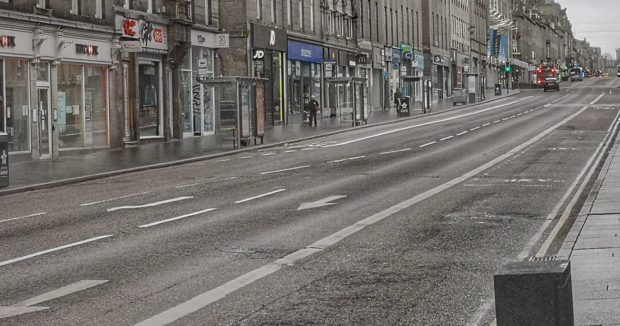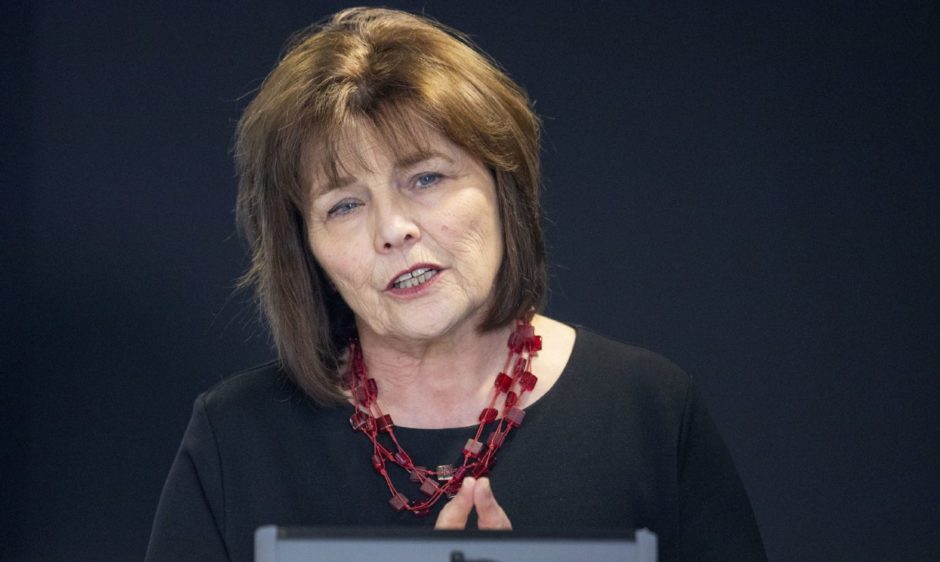Nicola Sturgeon has warned that some form of coronvirus restrictions could still be in place next year as she launched her document to take Scotland out of the lockdown.
The most vulnerable are likely to be shielded for the “foreseeable future” and mass gatherings, like sporting events and concerts, will not be held for “months to come”, the first minister said.
Ms Sturgeon emphasised Scotland was not ready to ease restrictions and warned proposals to do so in the future could be followed by a rapid re-imposition of lockdown if it is found that the spread of the virus accelerates again.
She was unable to guarantee that schools would be back before the summer break, but options included redesigning classrooms to allow social distancing with groups of pupils reporting for lessons on alternate weeks.
The continuation of anti-Covid-19 measures meant Christmas might happen “slightly differently” depending on how much progress was made, but the first minister reassured the public that festivities would not be cancelled.
At her daily coronavirus briefing, Ms Sturgeon discussed the Scottish Government’s newly published 24-page document, Covid-19 A Framework for Decision Making. She also announced the number of people in Scotland who have died after testing positive for the virus had increased by 58 overnight to 1,120.
The paper, which discusses the government’s coronavirus exit strategy, did not give any dates for when measures could be relaxed.
But Ms Sturgeon described it as the start of a “grown up conversation” with the Scottish public on the way forward.
If, after easing any restrictions, the evidence tells us we are unable to contain the
transmission of the virus then we will have to re-impose them, possibly returning to
lockdown with little notice.”Scottish Government’s official Covid-19 document
The document warned that lockdown may have to be reimposed at short notice “more than once” until a vaccine had been found. Ms Sturgeon went on to say the same approach would have to be taken across the UK.
“If, after easing any restrictions, the evidence tells us we are unable to contain the
transmission of the virus then we will have to re-impose them, possibly returning to
lockdown with little notice,” the document said. “While we will do our best to avoid this, it is possible that such a cycle may happen more than once until we reach a point when we have in place an effective vaccine.”
Going to the pub to stay banned for some time
The highly infectious nature of the virus meant there was “not much scope” to ease restrictions, according to the document, which added that gathering in pubs would be banned for some time to come.
“What we are seeking to do is find a new normal – a way of living alongside this virus but in a form that keeps it under control and stops it taking the toll that we know it can do,” Ms Sturgeon said.
She said social distancing would be a “a fact of life for a long time to come”, adding: “So that means possibly for the rest of this year and maybe even beyond.
“That’s why talk of lifting the lockdown as if it is a flick-of-a-switch moment is misguided. Our steps, when we take them, will need to be careful, gradual, incremental and probably quite small to start with.”
Any relaxation of lockdown would have to be done in conjunction with other measures such as maintaining social distancing, shielding the vulnerable, much larger-scale testing and contact tracing.
In terms of contact tracing, Health Secretary Jeane Freeman said ministers were looking at using the 21,000 retired health professionals and medical students who had come forward to help during the crisis.
The document said the Scottish Government would persist with working alongside the other nations of the UK but distinctive decisions could be taken for Scotland if the evidence suggested that was the right thing to do.
The government would also look at tailoring options to specific geographies and sectors – an approach that could see restrictions lifted in the rural economy or for those working outdoors.
When asked if that meant a different approach being taken on the islands or in remote areas, Ms Sturgeon said any decision would have to be weighed up with the messaging to the public. She suggested different rules for different areas could undermine the simplicity of the advice. Another option being explored is for different age groups being treated differently, although Ms Sturgeon said there were questions about fairness to be considered.
Shifting the desks to allow pupils to social distance
The document noted the negative effect that school closures were having on children’s education. Ms Sturgeon said schools would explore redesigning classrooms – or moving the desks – to allow social distancing.
Ms Sturgeon said it was “likely” the Scottish Government would issue guidance advising people to wear face coverings, such as a scarf or bandana in “very limited circumstances”.
Ministers were taking care over the advice because they were unwilling to give people the impression that wearing such an item meant it was “okay to do normal things without social distancing”.
On the question of relaxing restrictions on socialising, Ms Sturgeon indicated she would consider Belgian proposals that allow people to meet up with the same group of friends at the weekend on a regular basis.

